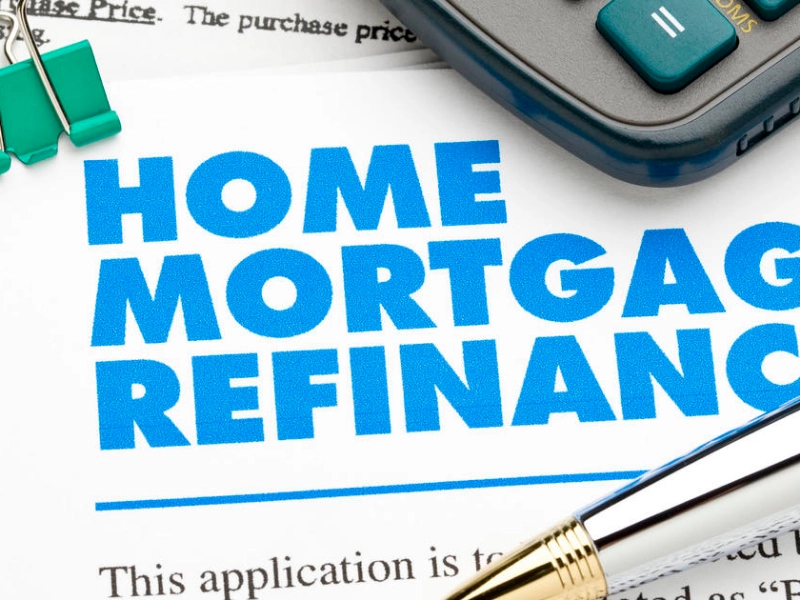You can save money and accelerate the building of equity by choosing a loan with a shorter term and lower interest rates. It's crucial to consider the advantages and disadvantages of refinancing your mortgage, though. Astute homeowners are constantly searching for methods to lower debt, increase equity, and save costs. One approach to doing all four could be to refinance your mortgage.

 Refinancing your mortgage entails obtaining a new loan, frequently with a different interest rate or loan duration, to cover the remaining balance owed on your house. Shortening the duration of your loan, such as going from a 30-year to a 15-year term, can help you pay off your mortgage more quickly and reduce your interest expenses. Remember that since you're putting more principal into each payment, a shorter loan term could mean higher monthly payments.
By making additional payments, like a biweekly mortgage payment, you can also reduce the length of your loan. This technique can drastically lower your interest rate and shorten the time you spend repaying your loan. Additionally, some homeowners use refinancing to modify the conditions of their loan repayment, move to a new loan type, or use the equity in their house as leverage for other goals like debt reduction or home upgrades. Just remember to budget for closing costs, since they can rapidly mount up.
Refinancing your mortgage entails obtaining a new loan, frequently with a different interest rate or loan duration, to cover the remaining balance owed on your house. Shortening the duration of your loan, such as going from a 30-year to a 15-year term, can help you pay off your mortgage more quickly and reduce your interest expenses. Remember that since you're putting more principal into each payment, a shorter loan term could mean higher monthly payments.
By making additional payments, like a biweekly mortgage payment, you can also reduce the length of your loan. This technique can drastically lower your interest rate and shorten the time you spend repaying your loan. Additionally, some homeowners use refinancing to modify the conditions of their loan repayment, move to a new loan type, or use the equity in their house as leverage for other goals like debt reduction or home upgrades. Just remember to budget for closing costs, since they can rapidly mount up.
 Record-high levels of consumer debt are driving many borrowers to look for unconventional ways to pay down numerous obligations. By combining payments into a single monthly installment, reducing interest rates, and perhaps even enhancing credit scores and financial stability, debt consolidation can result in cost savings.
Examine your debts, interest rates, and terms of payback to see if this strategy makes sense for you. This can be accomplished by looking over your credit reports to find interest rates, current balances, and monthly payments. It may be possible for you to select a lender or debt management plan that best suits your requirements once you are aware of what you owe and how much you can afford to pay.
Personal loans, credit cards with balance transfers, and debt relief initiatives like debt management plans are examples of debt consolidation possibilities. While each has unique requirements and benefits, they can all reduce payments by offering a longer loan term, a lower interest rate, or a combination of the two.
Record-high levels of consumer debt are driving many borrowers to look for unconventional ways to pay down numerous obligations. By combining payments into a single monthly installment, reducing interest rates, and perhaps even enhancing credit scores and financial stability, debt consolidation can result in cost savings.
Examine your debts, interest rates, and terms of payback to see if this strategy makes sense for you. This can be accomplished by looking over your credit reports to find interest rates, current balances, and monthly payments. It may be possible for you to select a lender or debt management plan that best suits your requirements once you are aware of what you owe and how much you can afford to pay.
Personal loans, credit cards with balance transfers, and debt relief initiatives like debt management plans are examples of debt consolidation possibilities. While each has unique requirements and benefits, they can all reduce payments by offering a longer loan term, a lower interest rate, or a combination of the two.
 Mortgage payments, appreciation in property values, and other factors all contribute to homeowners' equity in their homes. There are other methods they might use to access this equity, such as sale-leaseback, HELOC, or home equity loans. However, homeowners should think about how they will utilise the money and what their financial payback is before considering taking money out of their personal finance "piggy bank."
They ought to start by learning the value of their house. You can accomplish this by obtaining an appraisal or by using a home value estimator. They should then deduct this amount from their mortgage debt. They should therefore exercise caution to avoid taking on more debt than their homes are truly worth because doing so could put them "underwater," or in debt beyond the value of their properties.
It's advisable to reserve the equity in your house for costs like remodelling or a child's college tuition that will result in a favourable financial return. Saving money in other ways, like putting it into an emergency fund or retirement account, is also a smart idea.
Mortgage payments, appreciation in property values, and other factors all contribute to homeowners' equity in their homes. There are other methods they might use to access this equity, such as sale-leaseback, HELOC, or home equity loans. However, homeowners should think about how they will utilise the money and what their financial payback is before considering taking money out of their personal finance "piggy bank."
They ought to start by learning the value of their house. You can accomplish this by obtaining an appraisal or by using a home value estimator. They should then deduct this amount from their mortgage debt. They should therefore exercise caution to avoid taking on more debt than their homes are truly worth because doing so could put them "underwater," or in debt beyond the value of their properties.
It's advisable to reserve the equity in your house for costs like remodelling or a child's college tuition that will result in a favourable financial return. Saving money in other ways, like putting it into an emergency fund or retirement account, is also a smart idea.